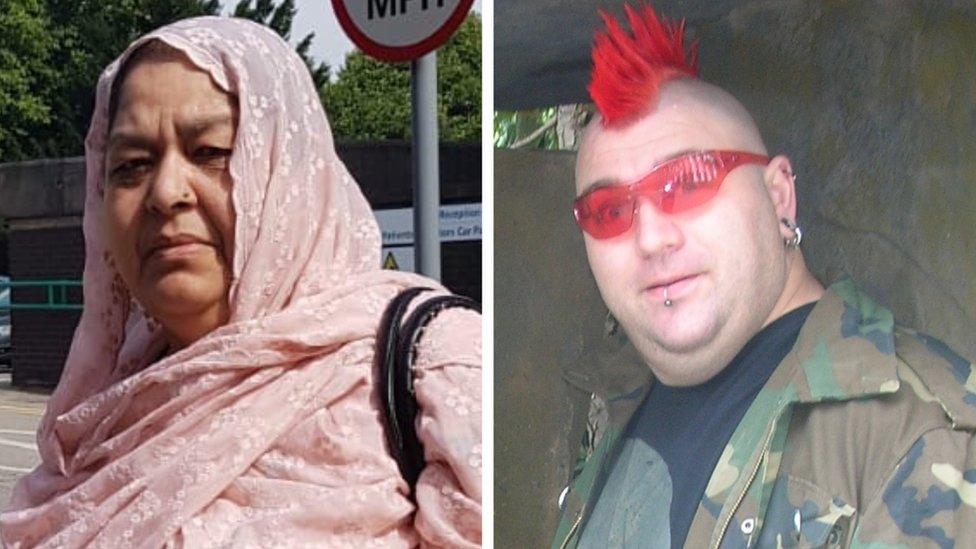Smart motorways: Widow criticises new highways campaign
- Published
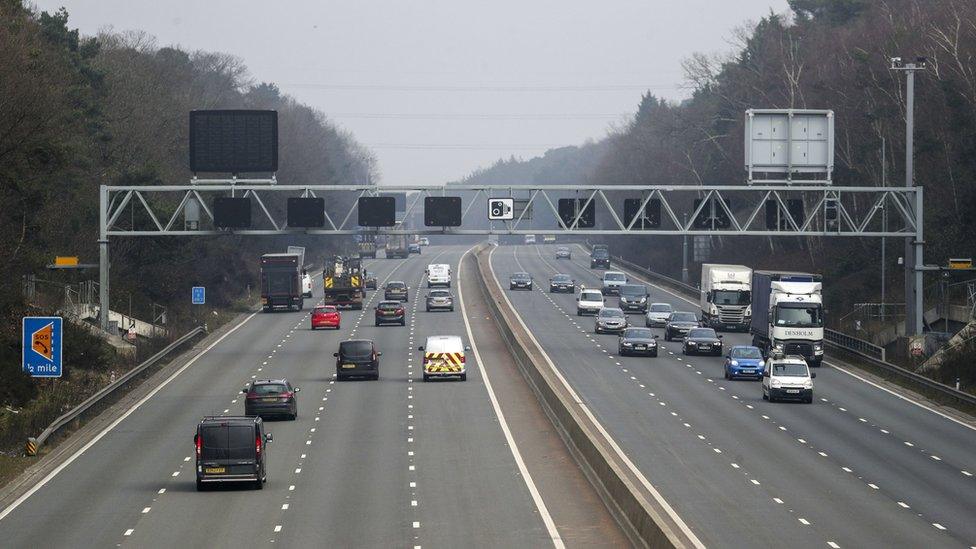
About 10% of motorways across the country have been converted into smart motorways
A widow whose husband was killed on a smart motorway has branded a new safety campaign "patronising and dismissive".
National Highways released the 12-minute video, featuring Gadget Show presenters Ortis Deley and Suzi Perry, this week.
Claire Mercer, whose husband Jason died on a smart section of the M1, said the clip, designed to explain features of the roads, did "not represent reality".
National Highways said it was "determined" to keep drivers safe.
Mrs Mercer, from Rotherham, has spearheaded a campaign against smart motorways since her husbands' death, arguing that lack of a hard shoulder posed a danger to motorists.
In the video, external, Deley and Perry declare they will "take a road trip" to a smart motorway.
They speak to a highways officer before driving on a section of all-lane running motorway, where the hard shoulder has been turned into a live lane.
The pair go on to discuss variable speed limits and what to do in the event of a breakdown.
Are smart motorways dangerous?
How smart are smart motorways?
Brakes put on all-lane smart motorways over safety
Mrs Mercer branded the video "juvenile", with "victim-blaming" language that "patronised" drivers.
In June 2019, 44-year-old Jason Mercer had stopped on a section of the M1 with no hard shoulder to exchange details with another driver when both were hit and killed by a lorry.
Mrs Mercer said driving on a converted hard shoulder should not be seen as "exciting", and that the video did not fully explain the risks of smart motorways.
"Where are all the HGVs? Where's the bad weather? Where's the poor light?" she said. "Where's the stranded vehicle that suddenly comes to a stop? Where's them having to get out of the passenger side of the vehicle?"
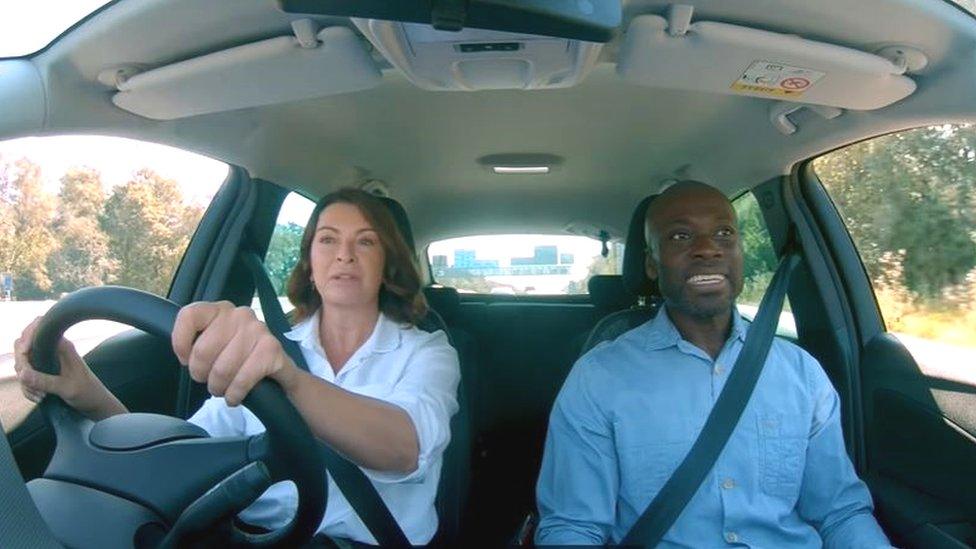
Gadget Show presenters Suzi Perry and Ortis Deley star in the 12-minute video
The government recently paused the rollout of all-lane running smart motorways while their safety is assessed.
There are no plans to reinstate hard shoulders on existing sections, a move criticised by Mrs Mercer and other critics.
She believes smart motorways save commuters about four minutes a day, and argued that this was negated by the increased risk of accidents.
"Four minutes a day means nothing when you've got two children in the car and you don't know which one to grab first," she said.
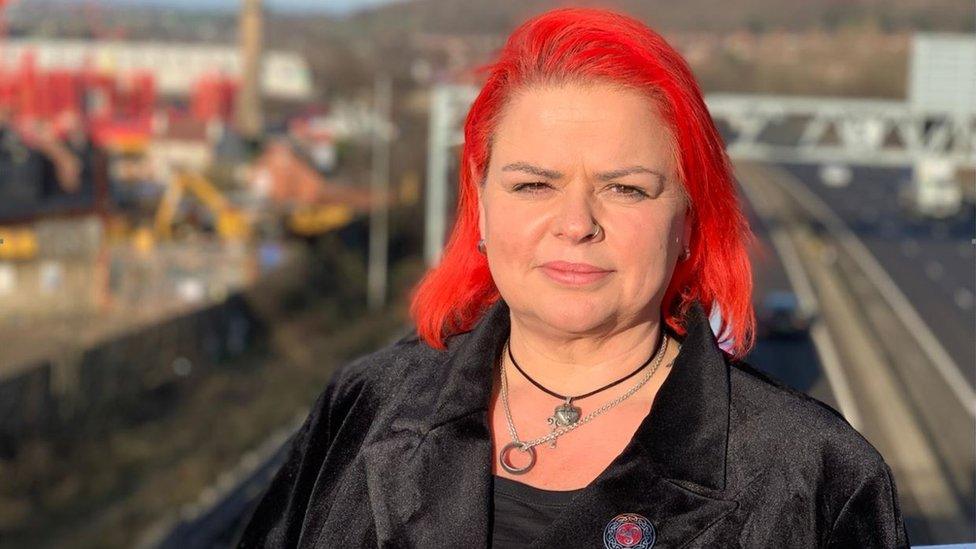
Claire Mercer, from Rotherham, has campaigned against the use of smart motorways since her husband's death
Mel Clarke, from National Highways, said the videos explained "in simple terms" how smart motorways work and how drivers should use them.
"We're investing hundreds of millions of pounds to make England's motorways and major A-roads even safer and we are determined to do all we can to help drivers feel safe and be safe on all our roads," she said.
"Road safety campaigns play an important part in that."

Follow BBC Yorkshire on Facebook, external, Twitter, external and Instagram, external. Send your story ideas to yorkslincs.news@bbc.co.uk, external.
- Published12 January 2022
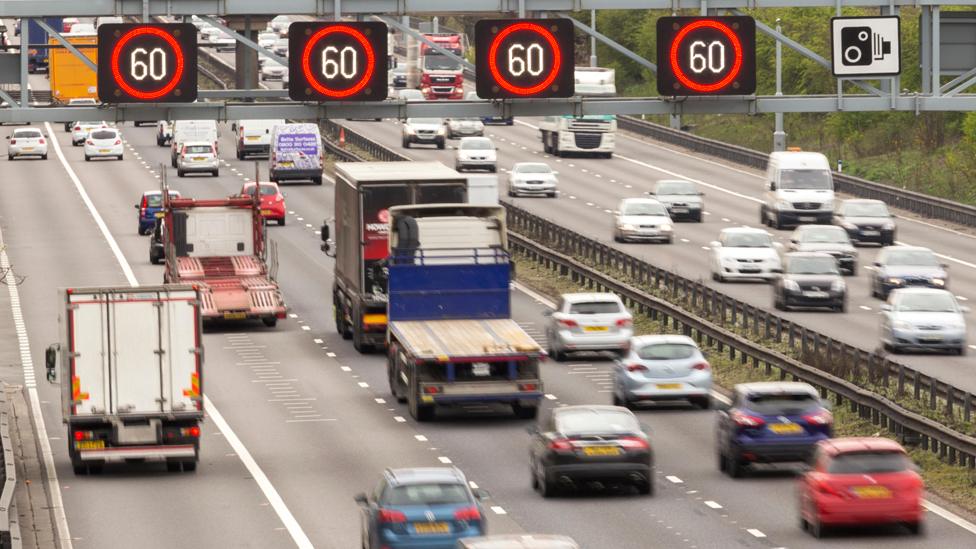
- Published2 March 2021
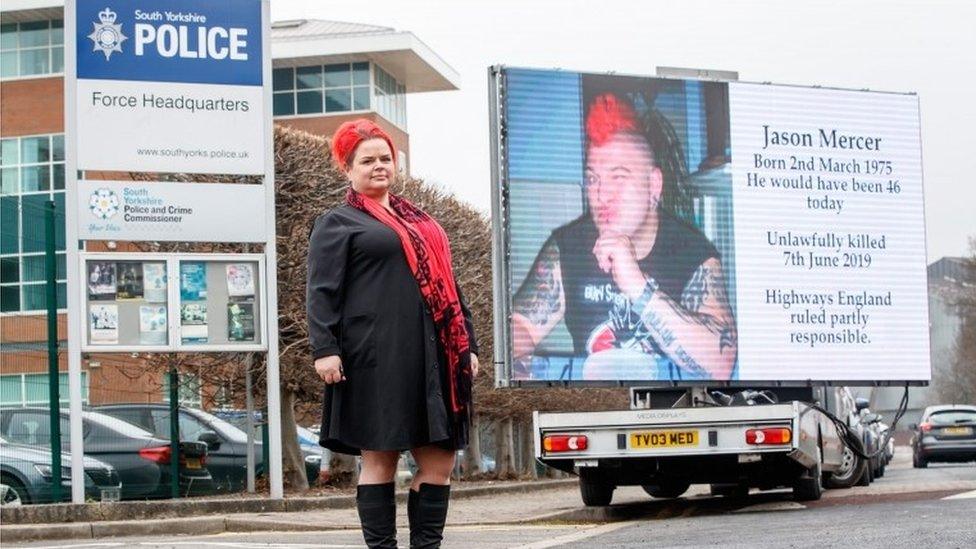
- Published18 January 2021
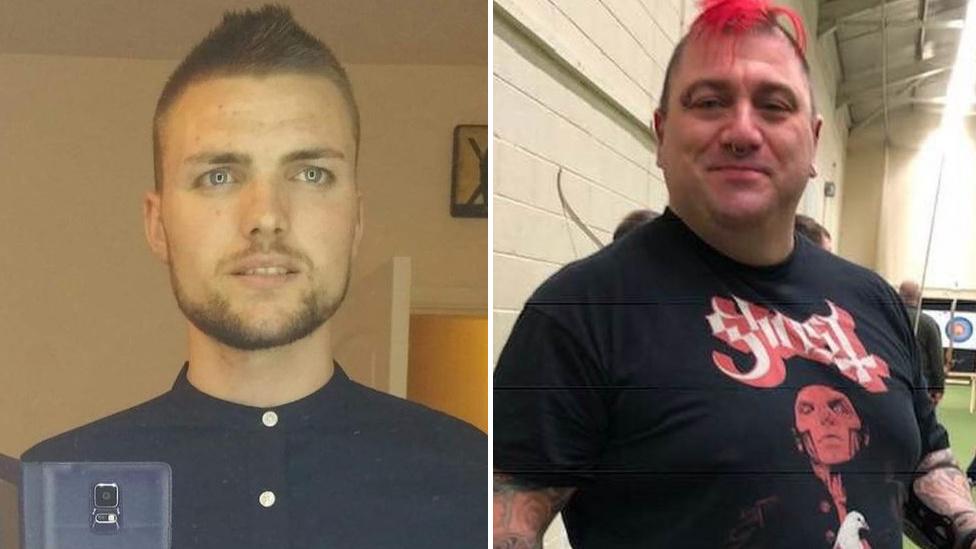
- Published23 November 2020
